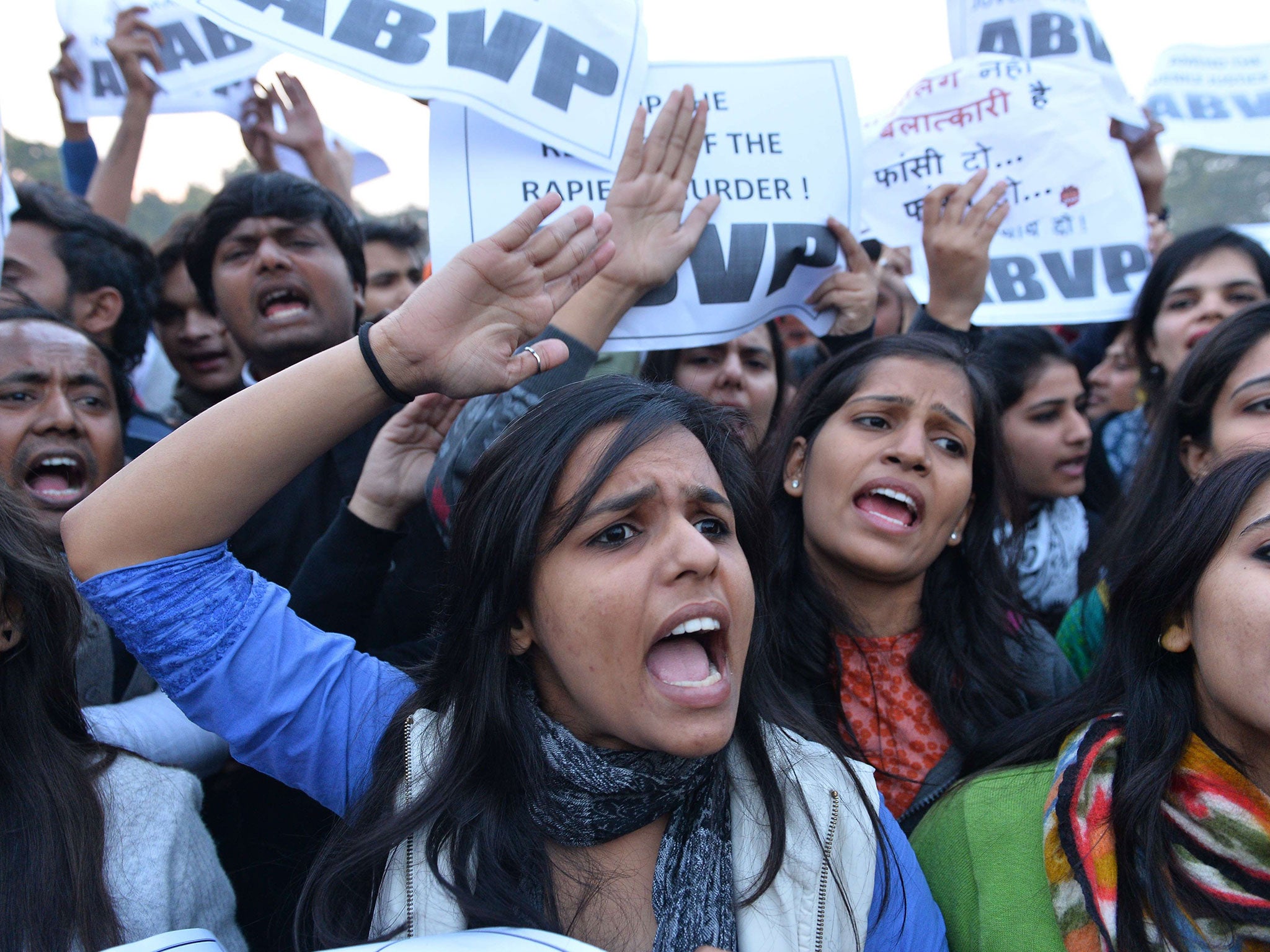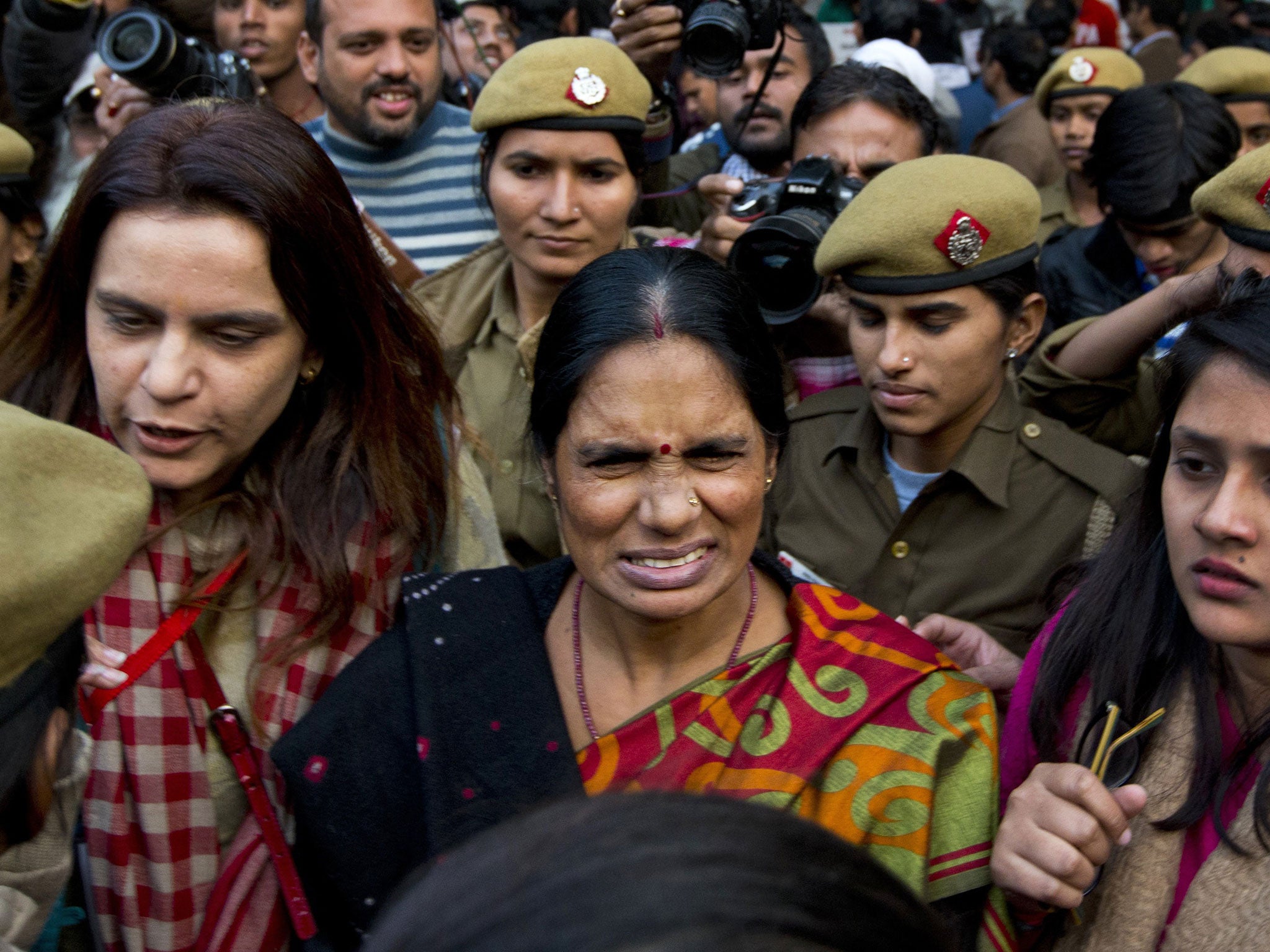Delhi bus rape: Indian parliament passes bill to lower criminal trial age after attacker released from prison
The man was 17 when he committed the attack, meaning he could be jailed for a maximum of three years

Your support helps us to tell the story
From reproductive rights to climate change to Big Tech, The Independent is on the ground when the story is developing. Whether it's investigating the financials of Elon Musk's pro-Trump PAC or producing our latest documentary, 'The A Word', which shines a light on the American women fighting for reproductive rights, we know how important it is to parse out the facts from the messaging.
At such a critical moment in US history, we need reporters on the ground. Your donation allows us to keep sending journalists to speak to both sides of the story.
The Independent is trusted by Americans across the entire political spectrum. And unlike many other quality news outlets, we choose not to lock Americans out of our reporting and analysis with paywalls. We believe quality journalism should be available to everyone, paid for by those who can afford it.
Your support makes all the difference.India has changed its laws to allow under-18s to be tried as adults for rape amid outrage at the release of one of the men who fatally gang raped a woman on a Delhi bus.
The unnamed man was 17 when he and five others repeatedly raped and beat their 23-year-old victim, known as Nirbhaya, in a brutal attack that shocked the world.
Her death a fortnight later sparked protests across India, calling for the government to do more to protect women from sexual violence, as well as renewed calls for the death penalty.
Nirbhaya’s parents led calls for changes to legislation which meant that all the adult offenders were sentenced to hang for kidnapping, rape and murder but the teenager could only be given a maximum sentence of three years.
The Juvenile Justice Bill, which must still be signed by India’s President before passing into law, lowers the age at which a defendant can be tried as an adult to 16.
It has been supported by both houses of parliament and will allow defendants to be given corresponding sentences up to life imprisonment and death in line with the severity of the offence.
Nirbhaya’s father called it a “tribute” to her memory, the Times of India reported, while her mother said: “I am satisfied, but sad that my daughter couldn't get justice.”

Maneka Gandhi, India’s women and child development minister, said the legislation aimed to strike a balance between the rights of a child and the need to deter violent crime, especially against women.
“Juvenile crime is the fastest rising segment in the country and the bill will help to stop (this),” she said. “The new law will decide whether a child committed the crime in a childish or adult frame of mind.”
New protests broke out on Sunday over the 2012 rapist’s release. He pleaded not guilty after police accused him of brutality including pulling out a part of the woman's intestines with his hands after she was raped and mutilated with iron bars.
The four remaining convicts in the case remain in prison, while a fifth was found hanging in his prison cell.
One of the accused rapists, Mukesh Singh, claimed he was driving the bus at the time of the attack and did not take part, but defended the atrocity.
“A decent girl won't roam around at nine o'clock at night,” he said. "A girl is far more responsible for rape than a boy."
India's National Crime Records Bureau data shows that teenagers aged between 16 and 18 account for a majority of minors arrested but activists said the latest amendment violated child rights and would not reduce crime rates.
Additional reporting by Reuters
Join our commenting forum
Join thought-provoking conversations, follow other Independent readers and see their replies
Comments